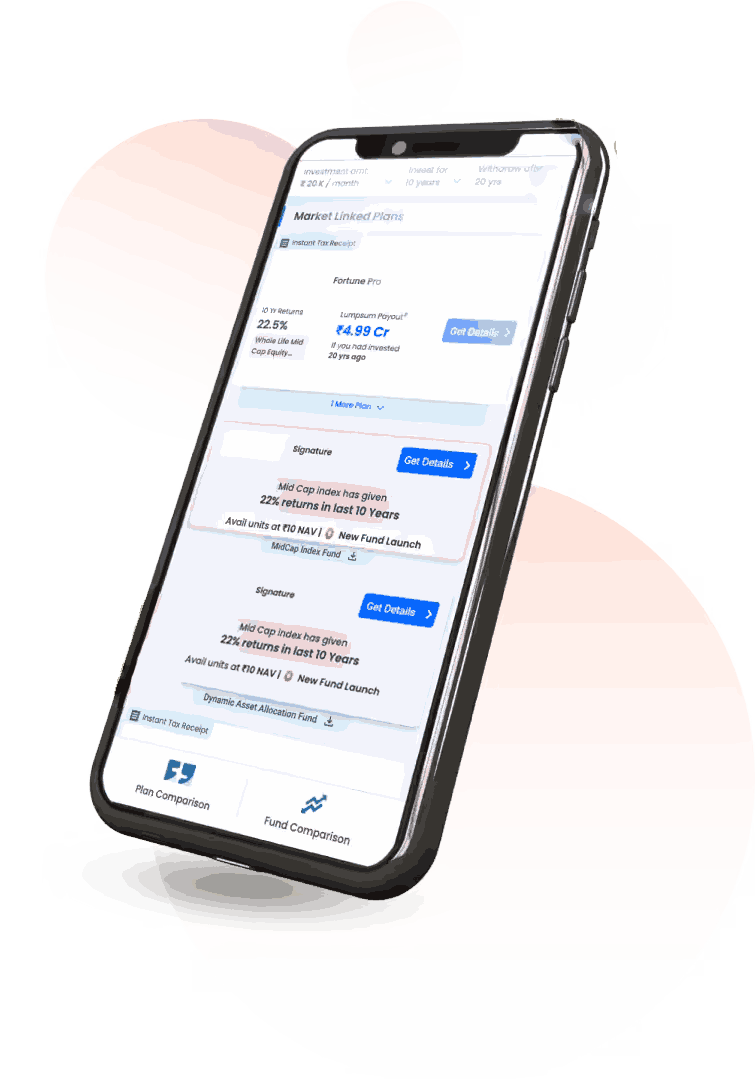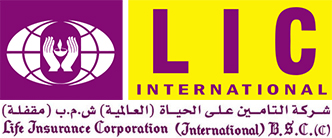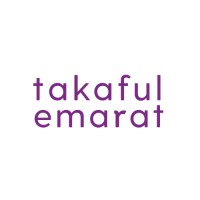How to Buy Life Insurance from Policybazaarinsurance.ae
Getting the best life insurance in the UAE is quick and easy with Policybazaarinsurance.ae. Follow these simple steps to secure your life cover —

Life insurance is a crucial product that offers financial protection to your loved ones in case of your untimely death. It is a contract between you and an insurance company where you pay regular premiums — in return, the insurer promises to provide a lump sum amount to your beneficiaries in case of ...read more
This financial security helps ensure that your family can maintain their lifestyle and cover important expenses such as —
Think of a life insurance policy as a safety net that helps you provide for those you care about, even when you're no longer there to support them.
Some of the best Term Insurance quotes in UAE & Dubai are:
Life insurance is essentially an agreement where the insurer promises to pay a set amount of money to the insured’s designated beneficiaries following their death in exchange for recurring premium payments. This sum is known as the death benefit — its purpose is to financially support your loved ones when they need it most.
Here’s how a life policy typically works —
| Determine Your Coverage Needs | You start by deciding how much coverage your family would need. This amount is based on factors like family size, lifestyle, future obligations, and financial responsibilities. |
|---|---|
| Premium Payments | Once you've chosen your coverage amount, the insurance company calculates the premium (the amount you need to pay) based on the coverage amount and factors like your age, health, and occupation. Premiums can be paid in different ways, such as monthly, quarterly, or as a lump sum. |
| Policy Term | The policy will have a predefined term during which you pay the premiums. This term can range from a few years to more, depending on your policy. |
| Benefits Provided as per the Type of Policy | Different life insurance plans offer different benefits. Some provide just a death benefit (the amount your beneficiaries receive upon your death), while others, such as endowment policies, also offer maturity benefits if you survive the policy term. |
To select the right life insurance plan that fits your goals — whether it's protecting your family, securing your retirement, or building savings — it’s important to know the major types available.
Term Life InsuranceProvides financial protection for a fixed term (e.g., 10, 20, or 30 years). If you pass away during the term, the nominee receives the sum assured. Best for: Individuals who need affordable coverage for a specific period (e.g., until children are grown or mortgage is paid off) |
Endowment PolicyCombines life coverage with a savings component, paying a lump sum on death or policy maturity. Best for: Individuals who want both insurance and a savings plan that pays out at maturity |
Whole Life InsuranceOffers coverage for the entire life of the policyholder, typically up to 100 years. Some policies require premium payments for a limited time. Best for: Those who are seeking long-term coverage for their family |
Unit-Linked Insurance Plans (ULIPs)A combination of insurance and investment. Part of the premium goes into a fund (equity, debt, etc.), with returns depending on market performance. Best for: Investors with a higher risk appetite who want to benefit from both life cover and wealth creation |
Savings and Investment PlansCombines life insurance coverage with long-term investment options to accumulate savings. Best for: Those who want both insurance protection and an opportunity for wealth growth |
Retirement PlanProvides a steady income after retirement, ensuring financial stability during retirement years. Best for: Individuals looking to build a retirement corpus for post-retirement living |
Life insurance is not just an investment in your family's future — it's a safeguard that ensures their financial stability in the face of unexpected events.
Here are the top life insurance plans in UAE with all the necessary details for you to compare —
| Best Life Insurance Plans in the UAE | |
|---|---|
HAYAH Term Life Protect
|
Sukoon Family Takaful Term
|
Zurich International Term Assurance
|
Arabia Insurance Term Life
|
MetLife Live Life Now
|
|
Here are the key events that are not covered by life insurance in Dubai —
These riders can be added to your policy for additional coverage as per your needs —
This provides a lump sum if you get diagnosed with a critical illness listed in the policy. The amount can be used for treatment, covering lost income, or daily expenses.
In case of accidental death, an additional payout is made to the family along with the sum assured. This rider must be purchased at the time of policy enrollment.
If you become disabled and are unable to pay premiums, this rider waives future premiums while keeping the policy active. This ensures continuous coverage without the requirement for further premiums.
It provides benefits if you are diagnosed with a terminal illness that is expected to lead to death within a year (the timeline can vary by policy).
This allows you to get a second opinion from renowned healthcare providers (usually for free) for serious medical conditions.
This rider provides a lump sum amount if you become permanently disabled due to an accident or illness. Note that the payment is made as per the extent of the disability and other factors.
While a life insurance policy is primarily for individuals who have dependents, it can also be valuable for those who wish to ensure their future financial security. This includes —
| Breadwinners | Business Owners and Partners |
|---|---|
| If you are the primary income earner in your family, this type of insurance is crucial. In case of your unexpected death, it can replace your lost income and ensure your family continues to live comfortably without financial strain. | If you own a business or have a partner, life insurance can play a crucial role in financially protecting the business. It can help in the continuation of the business if something happens to you. |
| Young Adults | Those Wanting to Leave a Legacy |
| Although a life policy might seem unnecessary for young adults, it can be a wise decision. At a young age, they can lock in lower premiums and have financial protection for dependents, whether for parents or spouse and children after marriage. | For those who wish to leave a legacy — whether for children, grandchildren, or charity — a life plan can be a good way to pass on funds that can be used for education, charity, or other long-term goals. |
| Couples | People Approaching Retirement |
| Every couple should consider life insurance. In the event of a partner's death, the surviving spouse can face significant emotional and financial challenges. A life policy, however, can provide financial stability during such difficult times, allowing the surviving partner to adjust without immediate financial concerns. | If you are close to retirement, certain insurance types, such as whole life insurance, can provide extra financial support. This can help cover any gaps in your retirement savings and ensure you have a steady income. |
| Homeowners with Mortgages | Individuals with Dependents |
| If you have a mortgage, a life policy is a must. In case of the insured’s death, the policy proceeds can be used to pay off the mortgage — this lets the dependents keep their home without the additional burden of debt. | Anyone with dependents, such as young siblings or elderly parents, should consider life insurance. This ensures that your dependents are financially protected in case something happens to you. |
| Let’s Learn About ‘Insurable Interest’ 😎 |
|---|
| Insurable Interest is the idea that you can buy insurance for something or someone only if you share an emotional or financial interest with the same. For instance, you can insure your house because you would lose money if it were destroyed. Similarly, you can get a life policy for your spouse as their loss would affect you emotionally and financially. |
The amount of life coverage that you need depends on your financial responsibilities and goals. Some factors to consider are —
| Number of Dependents | The more people who rely on your income, the higher the coverage you'll need |
|---|---|
| Lifestyle and Future Goals | Consider your family's lifestyle, education expenses, and other goals they’ll need financial support for |
| Affordability | Be realistic about how much premium you can afford, as this will determine your coverage level |
| Children’s Education | How much will your children's education cost, and how long will they need financial support? |
| Investment Needs | What other financial goals do you have in terms of savings, retirement, or investments? |
Note: A financial expert can help you calculate your exact needs and recommend the best plan for your situation.
Getting the best life insurance in the UAE is quick and easy with Policybazaarinsurance.ae. Follow these simple steps to secure your life cover —

Additional Assistance: If you need help at any point, Policybazaarinsurance.ae offers 24x7 expert assistance to guide you.
Several factors impact how much you'll pay for your life policy. Here’s what you need to know —
Younger individuals typically pay lower premiums since they are at a lower risk of mortality during the policy term. Premiums increase as you get older.
Women tend to get lower premiums than men due to their lower mortality rates.
Pre-existing conditions or any health issues (e.g., diabetes, heart disease) could lead to higher premiums.
If your family has a history of certain illnesses (e.g., cancer, hypertension), you may face higher premiums.
Smokers or heavy drinkers often pay more for life policies as these habits can lead to health issues that increase the risk of death.
Term life insurance is usually cheaper than permanent life insurance. Similarly, if you add riders or extend coverage, it can raise your premiums.
The more coverage you choose, the higher your premiums. Consider how much your family would need to maintain their lifestyle without you.
If you have a high-risk job (e.g., construction worker, chemical engineer), your premium may be higher due to increased risk.
Here are a few basic terms related to life policies —
| Life Assured | The person whose life is covered by the insurance policy |
|---|---|
| Proposer | The person who purchases the insurance policy and pays the premiums |
| Nominee or Beneficiary | The person(s) appointed by the insured to receive the benefits if the latter passes away |
| Insurer | The insurance company that provides the life insurance coverage |
| Life Cover | The sum paid to the nominee upon the insured’s death |
| Maturity Benefit | For certain policies, this is the lump sum paid after the policy term ends if the life assured is still alive |
| Premium | The amount paid to the insurer for coverage |
| Premium Payment Term | The duration over which you pay premiums (could be annually, monthly, etc.) |
| Policy Term | The length of time for which your life insurance coverage is valid |
| Accidental Death Benefit | Additional payment made if the life assured dies in an accident |
|---|---|
| Total Permanent Disability | A rider where you receive a sum if you become permanently disabled due to an accident or illness |
| Death Benefit | The predefined sum paid to your nominee in case of death during the policy term |
| Surrender Value | If you decide to end your policy early, this is the amount you would get back |
Tabled below are the general criteria that you may need to meet to purchase a life insurance policy in UAE —
| Eligibility Criteria | Details |
|---|---|
| Age | 18 to 75 years |
| Income | Must demonstrate a stable and reliable income stream |
| Residency | Must be a resident of the UAE with all requisite documentation |
You must have the following documents to easily apply for the insurance —
| Documents Required | Details |
|---|---|
| Emirates ID | Required for all applicants |
| Passport and UAE residence visa | Required for expats |
| Medical Details | Medical records or health questionnaire may be required |
Note: The criteria and documents may vary based on your insurer. Make sure to connect with your provider before purchasing the policy.
By following the steps below, beneficiaries can ensure a smooth and efficient claims process and receive the insurance benefits they are entitled to —
Provide the insurance company with a certified copy of the death certificate to initiate the claim process
Inform the insurer as soon as possible — the sooner the claim process starts, the faster the payout
Complete and submit the claim form along with other required documents (such as the death certificate) to the insurance company
The insurer will verify the claim — if needed, additional documents may be requested
Once the claim is processed, the death benefit can be paid out in a lump sum or monthly installments
Life insurance, while not mandatory, is crucial to secure financial protection for your dependents against unforeseen circumstances. It helps meet future financial needs, such as family expenses or savings goals.
In fact, some plans also include maturity benefits, which make this insurance type suitable for both protection and financial planning.
There is usually no limit on the number of beneficiaries you can add to your policy. However, it’s advisable to verify the same with your insurer.
The cost of life insurance depends on various factors such as your age, number of dependents, financial goals, and the type of policy you choose.
Since there is no personal income tax in the UAE, you don’t specifically need a life policy for tax advantages.



















.png)
.png)
.png)
.png)
.png)
